Part of photography, or any new thing you are learning, is overcoming limits. Sometimes that means pushing your boundaries, getting out of your comfort zone, and doing things that scare you a bit, or possibly even that which strikes fear right into your very core.
Think about learning a new language as comparison. I’m learning Spanish and find I progress pretty quickly because I do one thing – actually speak it! I just spit things out in spite of the fact I may say something wrong, use the wrong verb tense, etc. I have also seen that a fear of speaking in Spanish does hold people back. I’ve noticed others in past had slower progress because they were slower to speak the language with native speakers for fear of doing it wrong, or looking stupid (or whatever the reason).
So what is the key to overcoming fear in photography, or anything in your life in general – well it’s pretty simple. You literally just have to do it anyway.
Feel the fear and do it anyway!
In fact I recommend this book by the same name: Feel the fear and do it anyway![]() and another new one coming out in January called Level Up Your Life that addresses fear as well. This applies to all areas of your life not just photography.
and another new one coming out in January called Level Up Your Life that addresses fear as well. This applies to all areas of your life not just photography.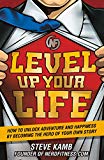
This is probably not anything new to you. But, let’s take a look at a few possible issues you may have around photography that could be holding you back – and how you can work on overcoming them.
Things you may have fear around in regards to your photography:
Do any of these ring true for you?
- I’m intimidated using non-automatic camera settings like Manual mode
- I’m afraid of photographing people, especially strangers
- That I’ll ruin my photos processing them using Lightroom or Photoshop
- I’m scared of sharing my work with others, or getting image critiques
- That I’ll never “get” it, or learn how to do the things I want to do
- That I don’t have enough time to dedicate photography so I’m stuck here
If you can relate to any, or all, of the points above – keep reading. We’re going to dive into some things you can do to help you get over these issues, and really move forward with your photography.
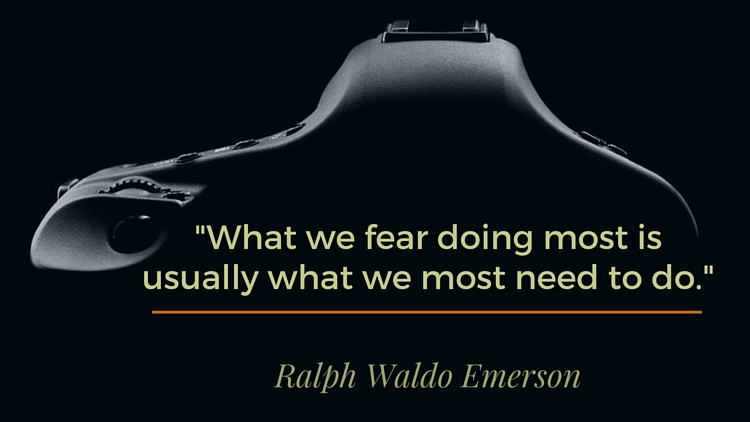
- Fear of using manual camera settings
- This is something I have seen in the classes I teach, so first of all know that you are not alone here!
Secondly, if getting off of the Auto settings and using Manual or adjusting things stresses you out, know that you can always revert back to auto in a pinch. I’ve heard that some photography teachers say that if you aren’t using Manual you aren’t doing it right, you fail as a photographer. Hogwash I say!
Photography is a process, and it takes time to learn new things. A digital camera is a complicated, complex, often confusing thing to get a handle on. You aren’t going to get it over night. So be patient with yourself, first and foremost.
What I suggest is pick one of your camera settings to start off with – and learn just that thing. Let’s say White Balance. You can read about it here first: White balance what is it, how to use it?. Then, put your camera on Program (it is still mostly automatic, but it will allow you to change some of the other settings, like this one) and consult your camera’s manual to see how to change the White Balance setting on your camera. Play with it when you have time, make mistakes, and learn as you do so. Then if you don’t feel ready to fly on your own yet – put it back on full auto until you are.
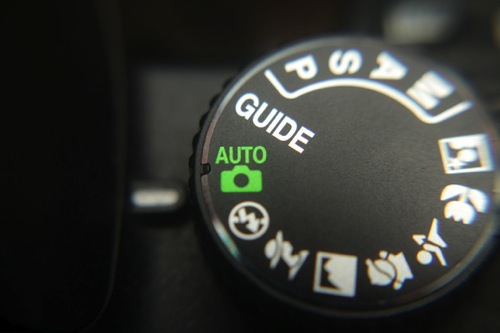
Then pick another setting – say aperture – and learn that one. Go through the same process and experiment at a time when getting the shot isn’t an issue. Then go back to what you’re comfortable with until you’re ready for the next step.
Slowly keep doing this and as you progress you’ll gain confidence in using your camera. One day you’ll find you’re ready to explore other shooting modes like perhaps Aperture Priority or even full Manual mode. But remember, have patience and there is no shame in using auto if you need to so you don’t miss a shot.
Here are a few more articles to help you out:
- Fear of photographing people
- Many beginners avoid photographing people – for many reasons:
- Fear of messing it up and having to show them a lousy photo you aren’t proud of
- Fear of asking permission, especially with strangers, and being rejected
- Or worst yet they will say yes and then you have to do it right (see first point above)
- Fear of looking like you don’t know what you’re doing, fumbling with your gear
- Taking too long and wasting the person’s time
- Fear that if you start taking people photos, others will start asking for you to take their photo too
Once again, I’m sure you can relate to a few of those. There are a few things you can do to work on this.
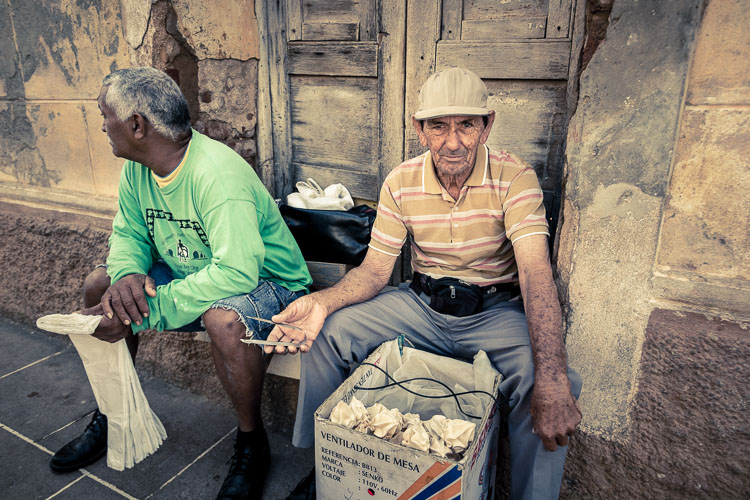
Let me just address the issue right now around the thought of, “But I don’t like to photograph people and I am never going to do it”. That may sound all well and good, but the reality is that if you have a “nice” camera, as deemed by our family and friends, you will eventually get asked to take someone’s photo, do a group shot at work of your co-workers, just take some shots for a friend’s Facebook profile, or heaven forbid even to photograph a wedding. So being comfortable and prepared to photograph people is a good skill to have in your arsenal.
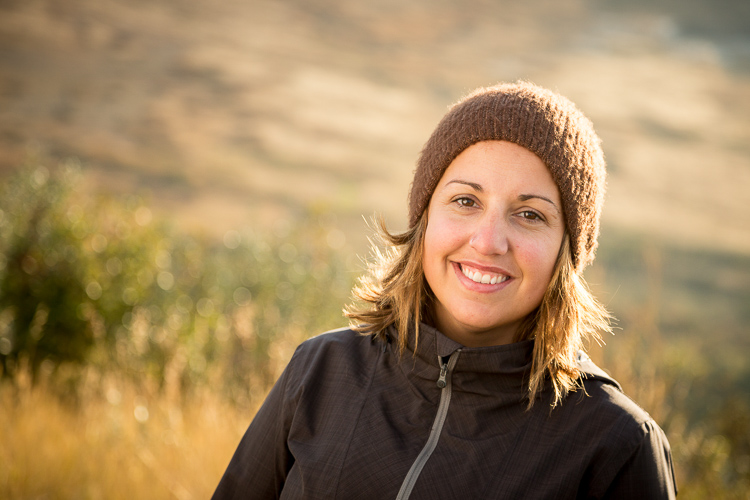
If you want some formal portrait kind of tips you can read: My Top 5 Random Portrait Tips or Understanding Available Light.
The biggest thing to learn about photographing people is to learn about light. Start with: Quality of Light – What is it? How do you use it? which will help you understand the different kinds of light. If you’re past that and really want to delve into lighting you might buy our Portrait Fundamentals course which will walk you through all the steps.
The second obstacle is just getting over the fear and the only way to do it, unfortunately, is to actually photograph some people. You could join a photography club or photo walk and go out with a group. There is safety in numbers and you may feel more comfortable. Photograph a festival or customed character – they like to have their photo taken and invite you do so.
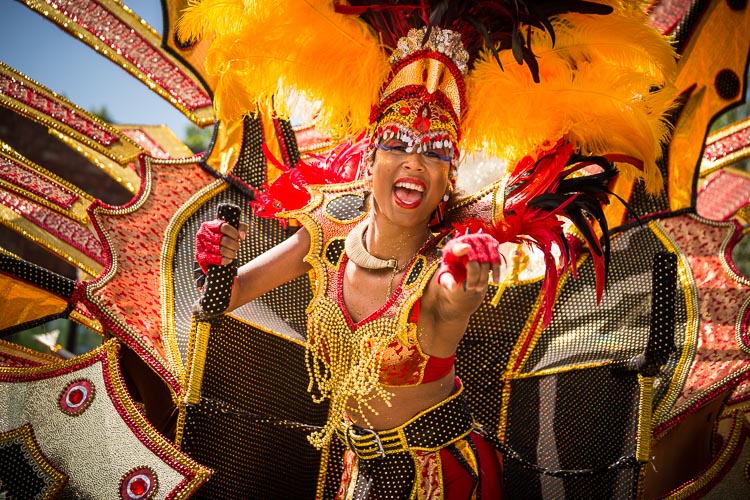
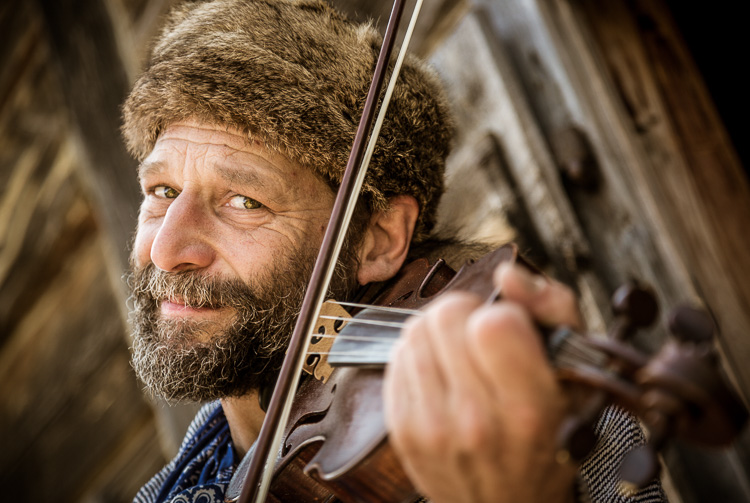
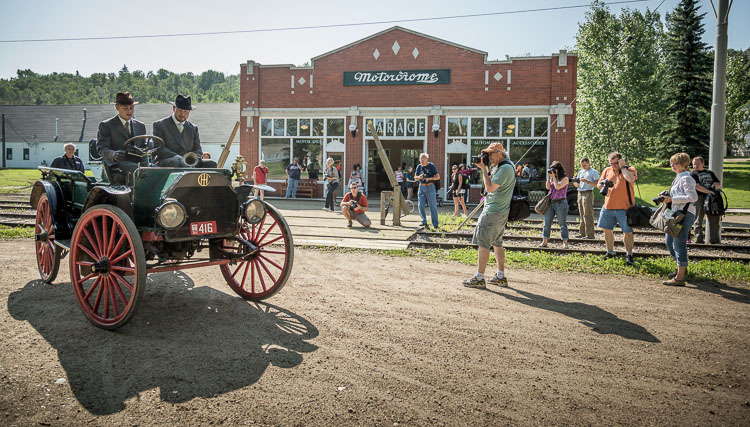
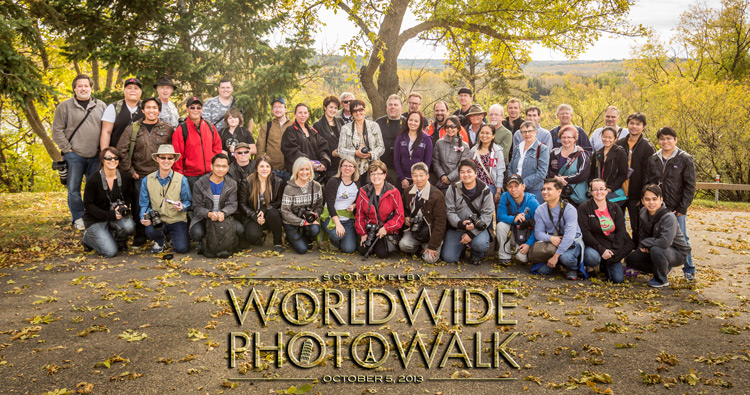
Start small, and ask a friend if you can borrow them for 5-10 minutes and take a few photos. Be prepared ahead of time and think about where you will place them, the background, your camera settings, etc. Even do a test shot before they arrive (use a teddy bear or something as a stand in) so you can avoid the fumbling with settings part. Then do one shot of them first, to test again. Review it for exposure, white balance, composition, and lighting. If you’re happy with it, show it to them – it will give them confidence too, as they’re probably just as nervous as you are. If you’re not happy with it – adjust what you need to, do another test, and repeat. Then just take a few more shots and have fun with it. Buy them a coffee, or give them the a couple of images later as a thank you.
NOTE: professionals do this! I never just start shooting the moment my clients arrive for a portrait session. We chat a bit, I take a test shot or two, adjust as needed, show it to them quickly, and then I shoot.
- Fear of ruining your photos by post-processing them
- If you haven’t gotten to the stage of processing your images yet, don’t worry about it. But, if you are avoiding it for fear of messing it up, that’s a different story.

There are a couple things you can do to make sure you never ruin your photos in processing:
- Always shoot in RAW format (any editing you do never applies to the original file so it’s impossible to ruin it unless you delete it by mistake)
- NEVER work directly on, and save over your original camera JPGs – make a copy, use adjustment layers in Photoshop, or use Lightroom. Always make a copy, work on that version, and save as a new file. That will insure that in the worst case scenario, let’s say you do make a mess of your image, you can always make another copy of the original and start over.
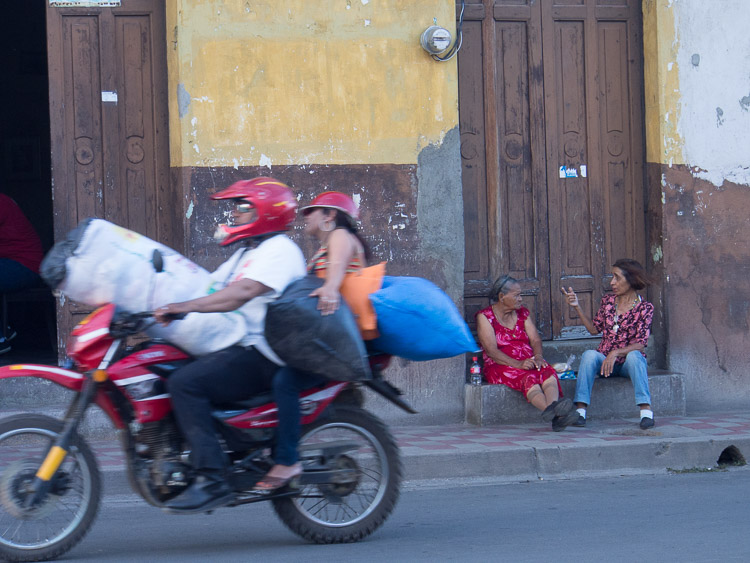
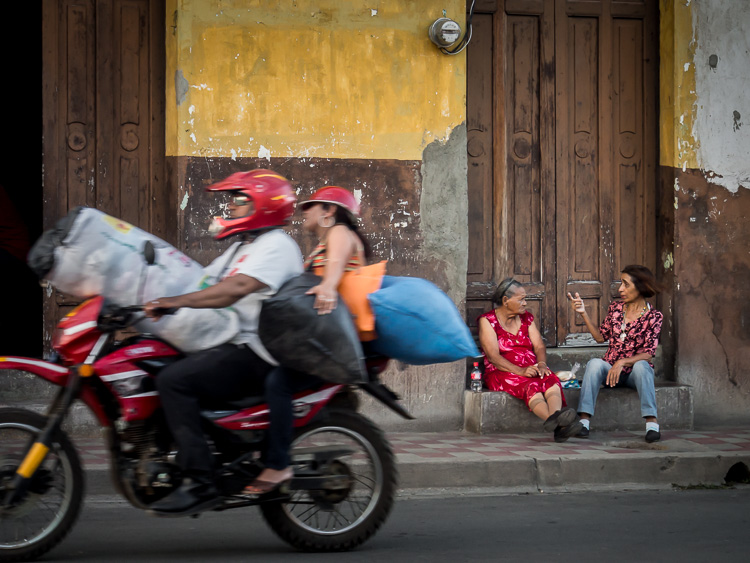
Having said that, if you follow those two pieces of advice you’ve got nothing to lose by trying.
My program of choice, and the one I recommend, is Adobe Lightroom. I have many articles and video tutorials on the topic – check out this page: Learn Lightroom to get started. By nature of the program is does what is called non-destructive editing – meaning it never alters your original file. It saves all the edits you make inside a database (called the catalog) and only when you export your files (it’s like: Save As) does it apply those changes, and makes a brand new file for you.
So, if you’re a control freak like I am, and you want to have more power over the look of your images (if you shoot JPG files, the camera adds: contrast, sharpening, and color saturation for you, which is impossible to change later) then eventually you’ll want to do some post-processing. You can choose to keep it natural, or get really artistic – just know you can’t do it wrong, and take the steps above to make sure that you can always revert back to the original.
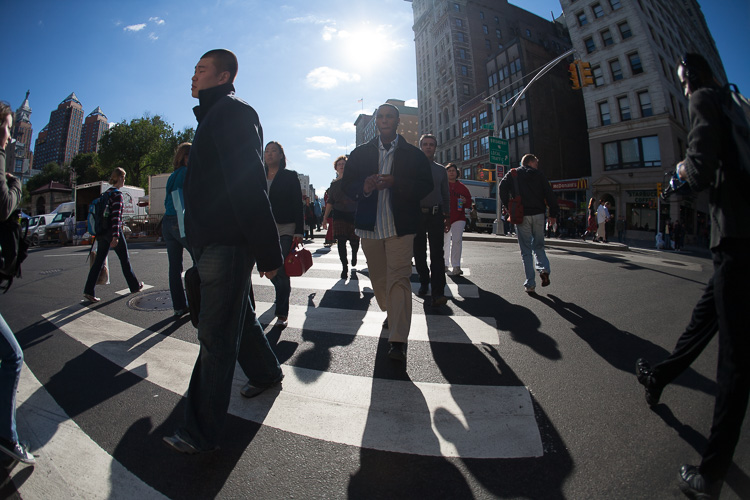
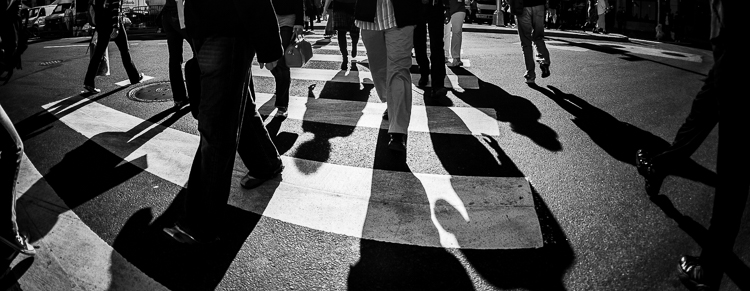
Check out these articles on processing images:
- Fear of sharing your images or getting feedback
- If you’ve been plugging along doing your own thing with your photography, you may not be used to sharing your work, especially not with the intention of having it critiqued or getting feedback on it. So it can be intimidating to do that for the first time.
We all have a fear of not being “good enough” and being accepted by our peers, I think that’s pretty universal. So putting yourself, and your photography out there on display for the world to comment on is a scary prospect – I get it.
How, and where, you choose to do so can make a big difference in your experience though. Here are a few ways that may get you undesirable results or potentially even a bad experience:
- Randomly posting in a Facebook group of photographers – you may get unwanted feedback that could possible even be harsh. Chose what you post, and which groups you participate in carefully. Troll the group for a while to see who they comment on other people’s images – is it positive and helpful, or just critical or mean?
- Not asking for specific comments on your image. By just posting an image and saying, “What do you think of this photo”? you could get all sorts of comments completely unrelated to what you want help with, or worse yet get your image ripped apart.
- Only asking family and friends – this will likely get you lots of OOOHs and AWWWWs but will you get anything valuable to help you improve your photography? Probably not.
- Posting in Flickr groups: doing this will likely get you dozens of “awards” and invites to share your image in other groups. However, in my experience, most people on Flickr are quick to say “wow great image”, but offer little in the way of an actual, helpful critique.
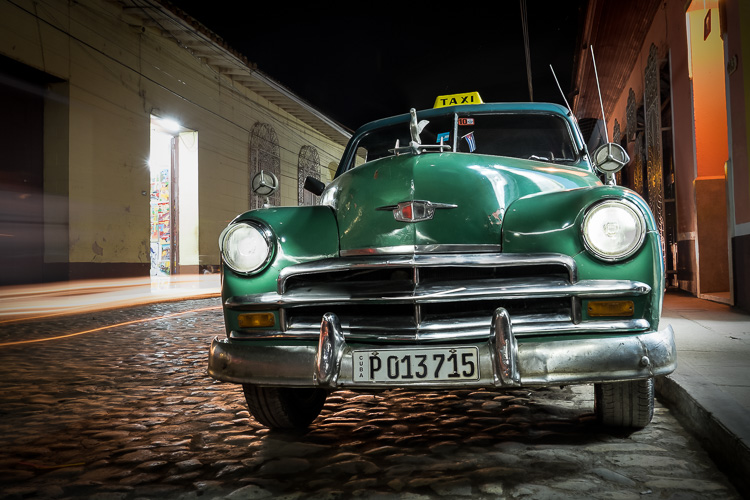
Now let’s look at some good ways and places to share your images:
- Sharing your images with other members of a camera club who are in the same boat as you – can be a safe and supportive environment, and a good way to get helpful tips and feedback.
- Taking an actual classroom class where you can get feedback from a trained photography teacher. Again not all teachers are equal either – get referrals or read reviews.
- Taking an online course that offers either participant or instructor feedback. I do this as much as possible with the courses we offer here on Digital Photo Mentor. I can’t promise notes on every image posted but try to offer helpful comments as often as I can. Usually you will pay a lot for courses with full student/instructor interaction ($500+), so choose one that’s right for your level and budget.
- Photography contests – again be choosey as they are not all alike. I just finished judging a contest on The Human Face, and part of my job was to add a review on at last 10 images. I actually did 34 of them, because I commented on the ones I felt could most benefit from a helpful tip, and that other people (not just the person who took the photo) could learn from also. Select a contest that offers feedback like Photocrowd, that does not keep your copyright (look for that in the FAQ section or rules), and has the possibility of even winning a prize.
- Find a personal mentor – this one is harder but can reap a lot of benefits for you if you make the effort. A mentor could be anyone who has more experience in photography, it doesn’t have to be a teacher or professional photographer. But they do have to be: willing to support you, gentle and helpful with their feedback, have the time to do so. Look to camera clubs for long time members, retired pros, or even reach out to people online who’s work you admire.
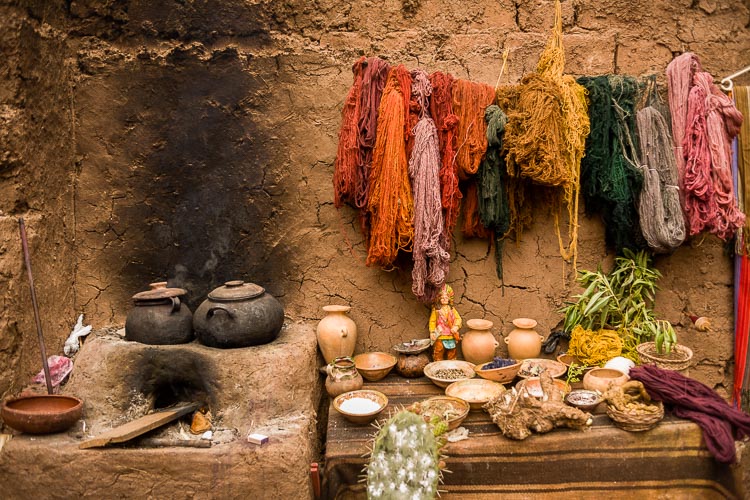
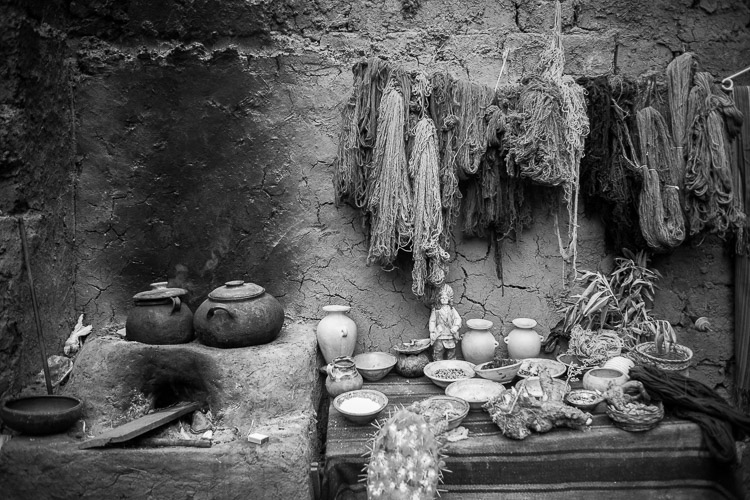
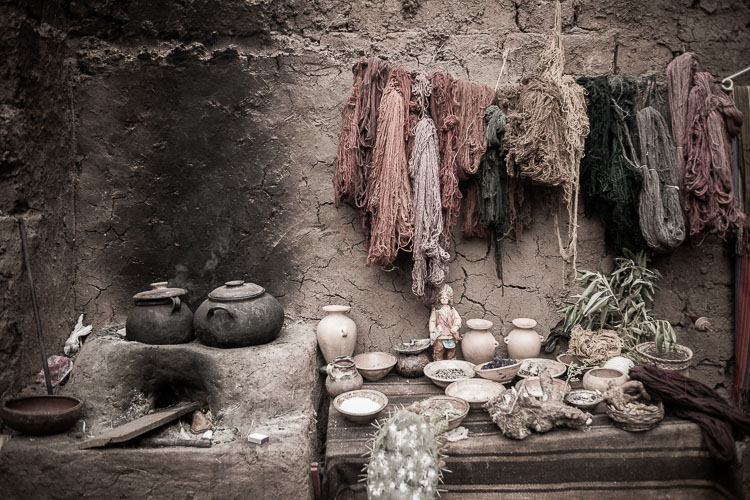
Bottom line here is that getting feedback on how you’re doing is a good thing and can really help you take your photography to the next level. Yes it can be scary, but do it right and you’ll have a positive experience.
- Fear that I’ll never get all this camera stuff
- “When will I get all this, when will it be easy?” – those are questions I get a lot in my classrooms. The answer – when put in the time to do more photography, and practice with intention!
What do I mean by that? Well, you can read all you want about riding a bicycle but how will you actually learn to do that? Right, get on one and just do it. You may fall a few times, scrape your knee, but eventually you’ll get the hang of it. The same is true of anything including photography. The more you pick up your camera the faster you’ll learn.
As for practicing with intention that involves giving yourself exercises or challenges. Do things you haven’t done before. Use new settings on your camera you didn’t know were there. Go photograph something different, or in a way you haven’t done before, using a new technique. Whatever it is, pick one thing at a time and practice that one thing until you know it inside out. Then pick another and do it again.
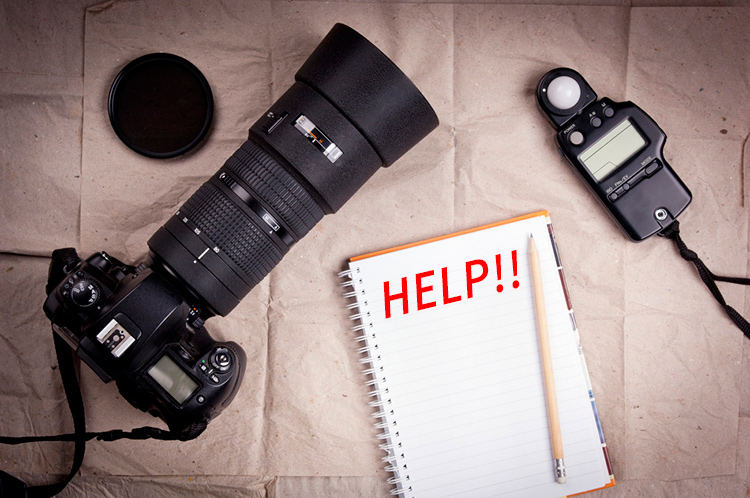
“In fact, researchers have settled on what they believe is the magic number for true expertise: ten thousand hours.” ― Malcolm Gladwell, Outliers: The Story of Success
You may not necessarily want to achieve that level in photography, and it’s also been said that if it takes 10,000 hours to be an expert, it takes 50 to be competent. So – start working on your 50 hours. If you only pick up your camera on weekends and always go shoot the same thing, in the same way, your learning process will be slower. To accelerate it, you honestly just need to do photography more often. I equate it to learning a language again.
If you take Spanish a class once a week, but never speak it or practice at home, other than to do an exercise in a book – it will take a longer time to learn that if you immerse yourself in it more often. You don’t have to move to a Spanish speaking country (although that can be a big help), you can do things like watch a movie that’s in Spanish with subtitles, listen to Latin music and try to pick out words you know, get a pal who speaks the language and have a coffee date with them once a week and only speak Spanish, etc.
A while back I had a monthly challenge on Using Your Camera Daily. If you missed that one, check it out and start there. If you’ve already done it – keep doing it! If only for five minutes every day, just take a few photos. Practice that one thing you most want to learn until you master it. That’s how you will get it.
Here are a few more articles to help you:
- Fear that I won’t have time to do photography
- Well, if this is an issue for you first read #5 above, I’ve already given some ideas why you may want to make time to do photography every day, or at least once a week. But this is a simple one to answer – put it in your calendar.
Like anything, we do the things we put priority on first, and things that get written in our calendar and on our to do lists – let’s be honest – get done first. Am I right?
So I’m not suggesting you don’t make time for your family, or skip out on work – what I am saying is that if photography is important to you, and is a priority in your life – schedule it. Pick a time once a week and mark off a block of time to go shoot something, or practice something so you get in your 50 hours.
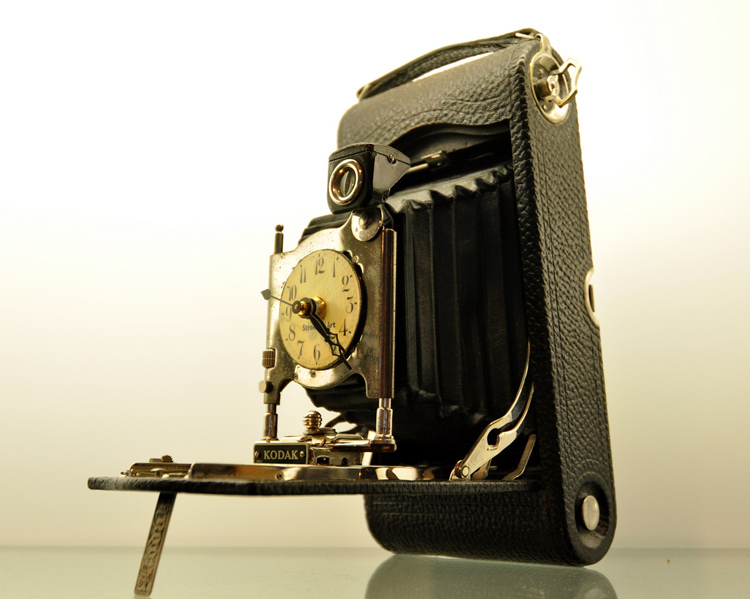
You can also make it double duty by combining it with something else that’s also important to you, such as spending time with your kids. What better way for you both to have fun than to go to the park. While they play, you can take photos of them, and you both have fun. Or maybe if you want to try night photography or light painting, get your kids to run the flashlight or move the sparkler (if they are old enough).
There are all kinds of studies that show us how much time we as a society in general waste, especially watching television. I get that there’s also a fatigue factor that comes into play, but do something, anything other than staring mindlessly at the screen (I’m guilty of this too, trust me!). Read about a technique you want to learn so when you have time you can go try it, or watch a YouTube video or tutorial.
Put some photography ebooks on your phone so you can read while standing in line at the grocery store. Subscribe to some photography podcasts (you can hear me on TWiP now and then) and listen to them on your daily commute or when you’re at the gym or taking a walk.
Bottom line is that it only takes a few minutes to add photography into your day, every day.
Summary and action plan
Wow that was a lot! I hope that you could relate to at least one of the points above and that it will help you move forward. Remember that only by taking action will get you results. So – what one thing are you going to do next to improve your photography?
Commit to it and share it with us in the comments below. Tell us which point above it relates to if you’re brave, and what action you will do to help you overcome it.
People with written goals are something like 90% (roughly, I don’t have the actual stats but it’s high) more likely to achieve them. Put it down in writing here, then go do it. We’re all with you!
Cheers,